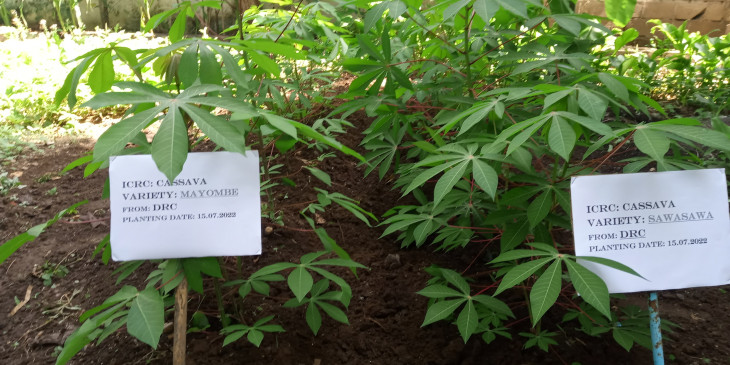The endorsement came after successful testing and analysis of the new varieties by an expert team of the MAFS.
Cassava, a root crop, remains one of the main staple foods in many parts of South Sudan. However, many farmers have been struggling with diseases affecting their crops and hampering productivity. The low yields affect farming communities’ access to food, who have been trying to rebuild their lives after years of armed conflict and violence.
In 2022, the ICRC imported the new “Sawa-Sawa” and “Mayombe” cassava varieties from the neighboring Democratic Republic of Congo and with technical support from MAFS. Partnering with local farmers, trials were carried out in Magwi, Eastern Equatoria State and Mundri, Western Equatoria State to assess the adaptability to the South Sudan environment.
The field evaluation conducted by the MAFS in April proves the new varieties to be disease-resistant, produce better yields and highly preferred by the communities.
The “Mayombe” and “Sawa-Sawa” varieties of the cassava plant now known as Mamu 1 and Mamu 2, respectively, in South Sudan, in one of the testing farms in Maggwi, Estern Equatoria State. Photo/ICRC
“The approval by the MAFS of the new varieties is a testament to the ICRC’s long-term commitment and partnership with the MAFS for a common goal of strengthening people’s resilience in the face of the ongoing food shortfall,” said Andrea Heath, the Deputy Head of ICRC Delegation in South Sudan.
Over seven million people in South Sudan are at risk of acute malnutrition due to recurrent conflict, violence and climate shocks. To help affected communities recover from these tremors and build resilience, the ICRC provides livelihood support through different initiatives including promoting innovative agricultural practices, enhancing climate-smart agriculture and market development initiatives.
For further information, please contact:
Okot Emmanuel, ICRC Juba/South Sudan, Tel: +211 (0) 926 077 915, onoah@icrc.org
Ramin Hashempour, ICRC Juba/South Sudan, Tel: +211 (0) 912 360 023, rhashempour@icrc.org
Alyona Synenko, ICRC Nairobi, Tel : +254716 897265, asynenko@icrc.org
We acknowledge Source link for the information.


